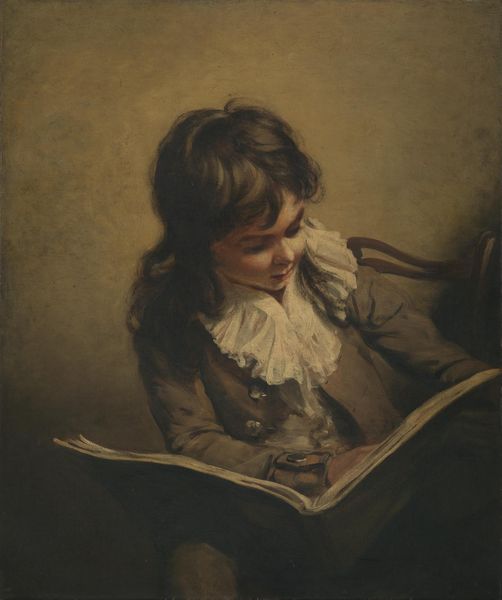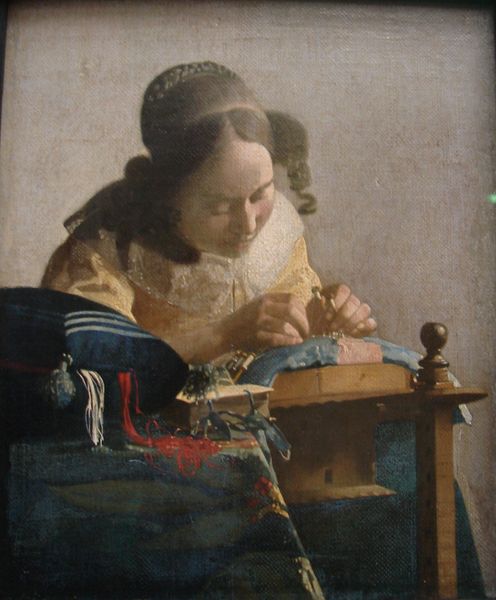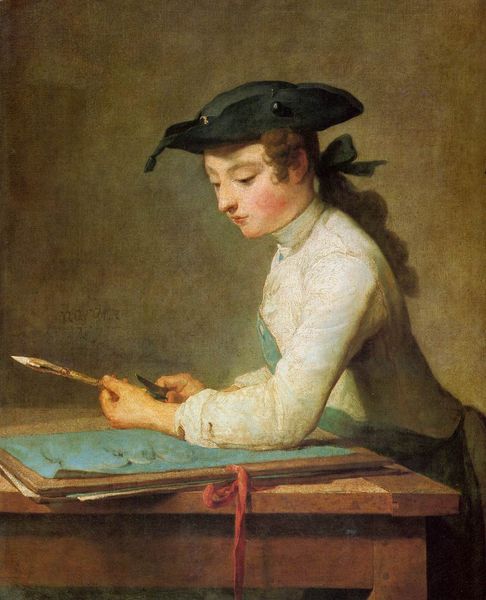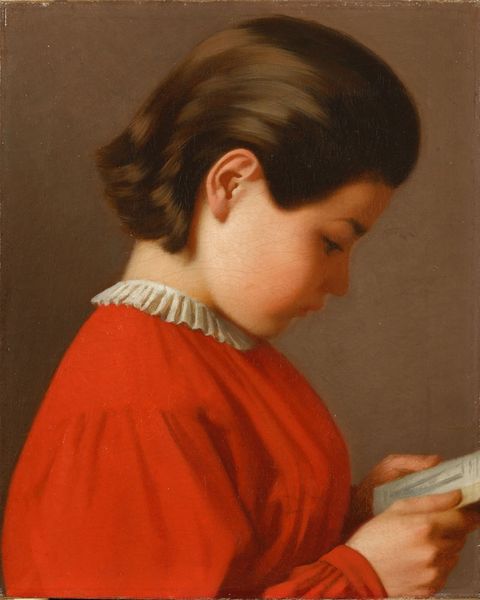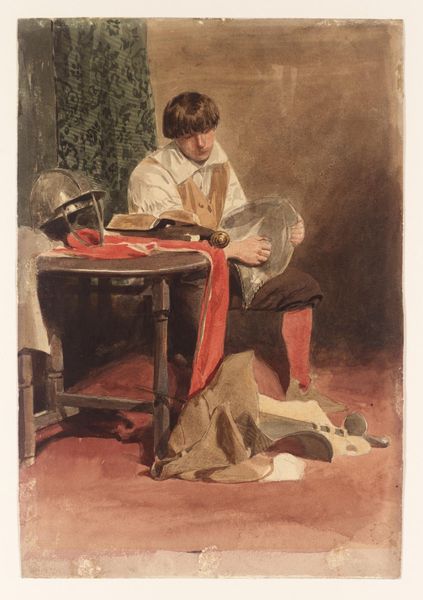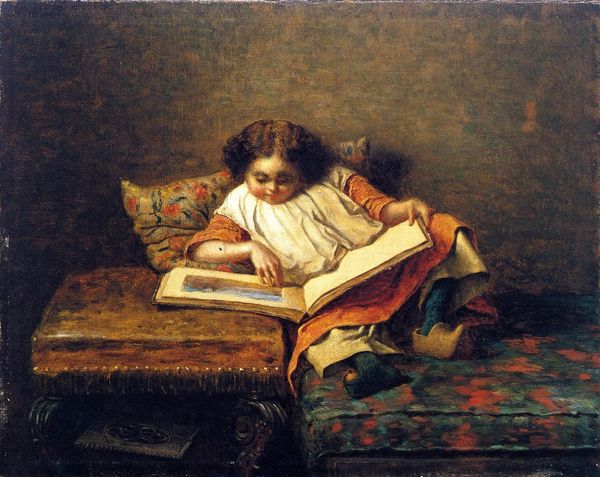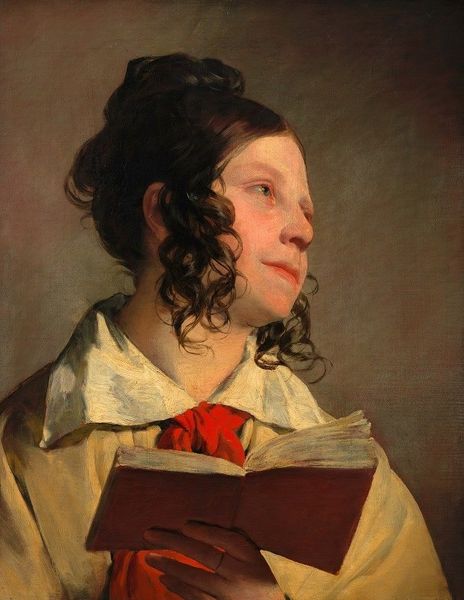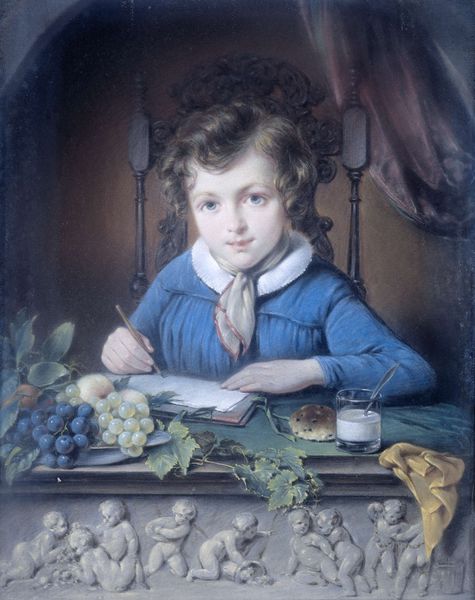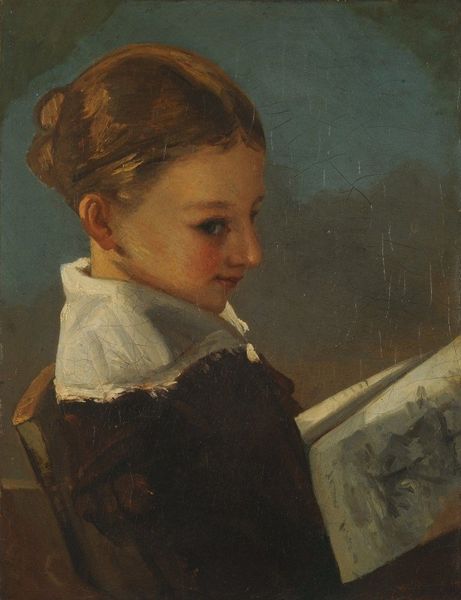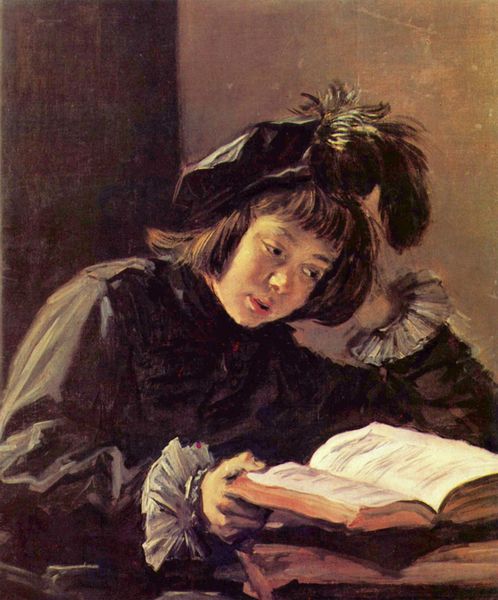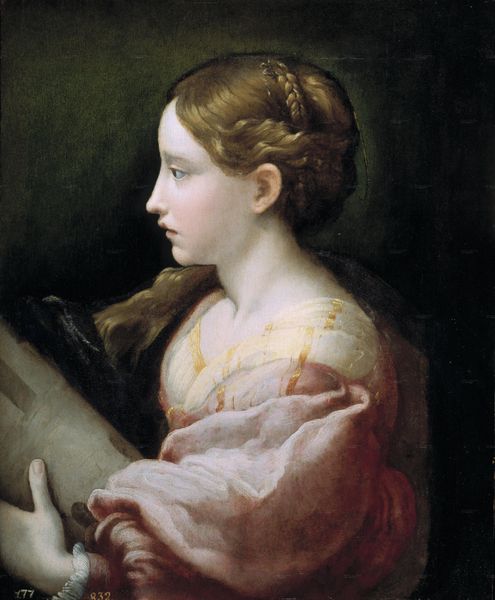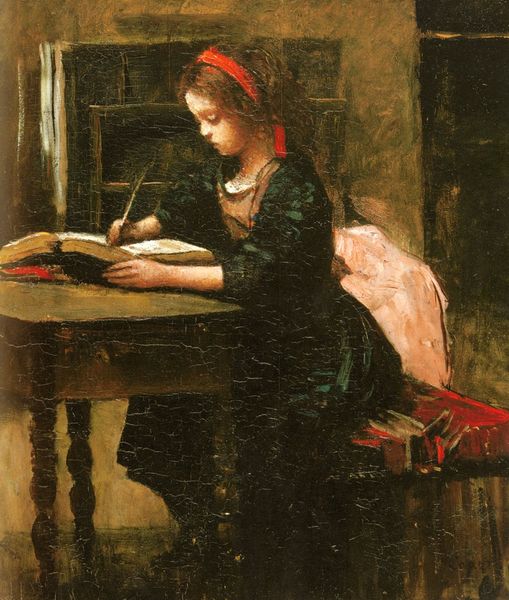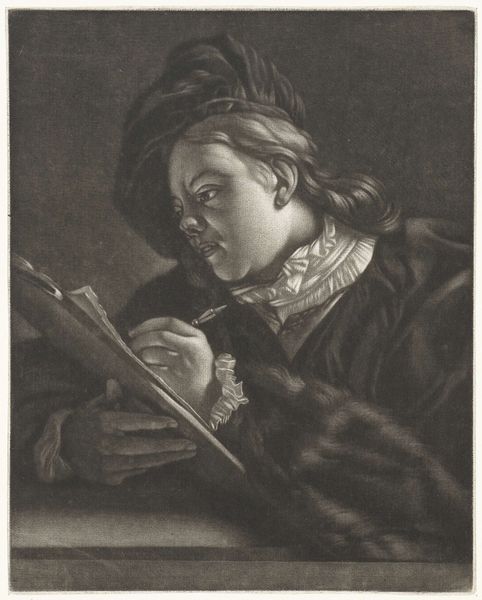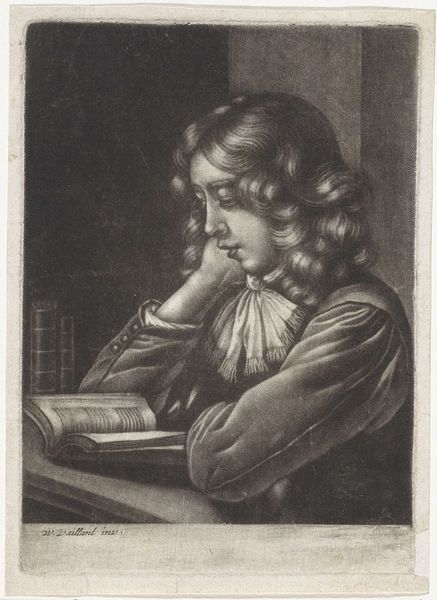
painting, oil-paint
#
portrait
#
baroque
#
painting
#
oil-paint
#
oil painting
#
genre-painting
Dimensions: 66 x 82 cm
Copyright: Public domain
Jean-Baptiste-Siméon Chardin created "The House of Cards" with oil on canvas; although undated, it embodies the artistic and social currents of 18th-century France. Chardin, celebrated for his genre paintings, often depicted scenes of middle-class life, subtly commenting on the era’s values. Here, a boy delicately constructs a house of cards, an activity that speaks to the themes of fragility and transient pleasure. In a society marked by rigid social hierarchies, the image also hints at the instability beneath the surface of the seemingly solid social order. Was Chardin commenting on the aristocracy’s precarious grip on power? "The House of Cards" reflects a shift in artistic patronage, from the aristocracy to the bourgeoisie. The painting’s intimate scale suggests it was intended for private contemplation. To fully understand this work, we need to consider the changing social conditions that shaped artistic production and reception during the Enlightenment, using a range of archival and historical sources. This approach helps us recognize the power of art to reflect and challenge the social norms of its time.
Comments
No comments
Be the first to comment and join the conversation on the ultimate creative platform.
